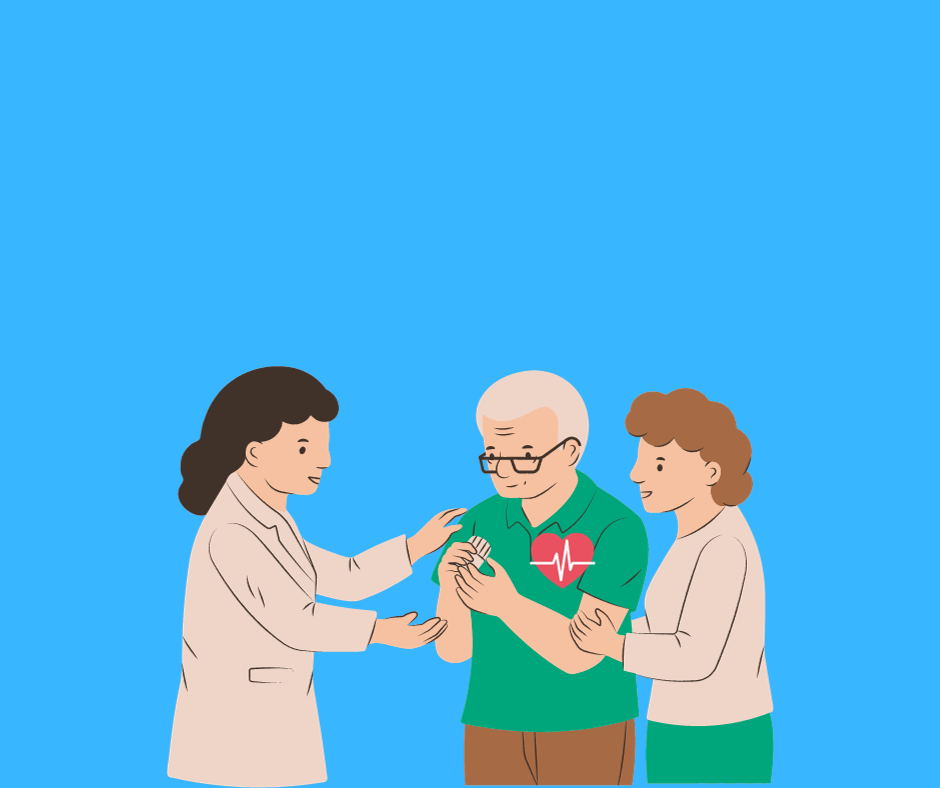
Heart disease is a prevalent health condition affecting millions of individuals worldwide. Understanding how to manage heart disease at home is crucial for individuals diagnosed with this condition. It involves a proactive approach towards lifestyle modifications, medication adherence, emotional well-being, and creating a supportive environment.
Understanding Heart Disease
Types of Heart Diseases
Heart diseases encompass a range of conditions affecting the heart, including coronary artery disease, arrhythmias, heart failure, and congenital heart defects. Each condition requires specific management strategies tailored to individual needs.
Causes and Risk Factors
Factors contributing to heart disease include high blood pressure, high cholesterol, smoking, diabetes, obesity, and a sedentary lifestyle. Recognizing these risk factors is pivotal in disease management.
Importance of Managing Heart Disease at Home
Effectively managing heart disease at home offers numerous benefits. It allows individuals to take charge of their health, reduces hospital visits, and improves overall well-being.
Lifestyle Modifications for Managing Heart Disease
Diet and Nutrition
A heart-healthy diet involves consuming fruits, vegetables, whole grains, lean proteins, and limiting sodium, saturated fats, and added sugars.
Exercise and Physical Activity
Regular physical activity, as advised by healthcare professionals, helps improve cardiovascular health, lowers blood pressure, and manages weight.
Medication Adherence and Monitoring
Importance of Prescribed Medications
Strict adherence to prescribed medications is vital for managing heart disease effectively. It helps control symptoms, prevent complications, and maintain heart health.
Monitoring Vital Signs and Symptoms
Regular monitoring of blood pressure, heart rate, weight, and any unusual symptoms is crucial. It enables individuals to recognize changes and seek immediate medical attention if necessary.
Stress Management and Mental Health Support
Coping Strategies
Learning stress-reduction techniques such as mindfulness, deep breathing exercises, and meditation can significantly reduce the impact of stress on heart health.
Seeking Emotional Support
Having a strong support system, whether through friends, family, or support groups, can alleviate emotional stress and provide encouragement during challenging times.
Creating a Supportive Home Environment
Reducing Environmental Triggers
Eliminating or reducing exposure to environmental triggers such as smoke, air pollutants, and excessive noise supports heart health.
Implementing Safety Measures
Ensuring a safe living environment by preventing falls, having emergency contacts readily available, and maintaining a clutter-free space is essential for those managing heart disease at home.
Emergency Preparedness
Knowing Emergency Procedures
Understanding and rehearsing emergency procedures such as CPR (cardiopulmonary resuscitation) and knowing when to call emergency services is crucial.
Creating an Emergency Plan
Developing a detailed emergency plan with contact information for healthcare providers, family members, and nearby hospitals is imperative.
Role of Family and Caregivers in Managing Heart Disease
Support System Importance
Family and caregivers play a pivotal role in providing emotional support, assisting with medication adherence, and promoting a healthy lifestyle.
Caregiver Responsibilities and Support Resources
Educating caregivers about the individual's condition, medication schedules, and providing access to support resources can enhance the quality of care.
Integrating Alternative Therapies
Complementary Approaches
Exploring complementary therapies like acupuncture, yoga, or herbal remedies under the guidance of healthcare professionals can complement conventional treatments.
Holistic Practices
Adopting a holistic approach involving mind, body, and spirit can contribute positively to overall well-being.
Technology and Tools for Monitoring
Wearable Devices
Utilizing wearable devices like smartwatches or heart rate monitors can aid in continuous health monitoring.
Health Apps and Devices
Various mobile applications and devices are available to track physical activity, nutrition, and manage medication schedules.
Financial Management and Resources
Cost-Effective Care Options
Exploring cost-effective treatment options and seeking financial assistance programs can alleviate the burden of healthcare expenses.
Accessing Financial Assistance Programs
Many organizations offer financial aid and support services for individuals managing chronic conditions like heart disease.
Consultation with Healthcare Professionals
Importance of Regular Check-ups
Regular check-ups and consultations with healthcare providers ensure proper management, medication adjustments, and timely interventions.
Communication with Healthcare Providers
Maintaining open communication with healthcare professionals allows for better understanding, clarification of doubts, and proactive management.
Overcoming Challenges in Home Management
Dealing with Setbacks
Acknowledging setbacks, learning from them, and staying committed to the management plan is essential in the journey of managing heart disease.
Resilience and Persistence
Building resilience and staying persistent in adopting healthy habits despite challenges leads to better outcomes in heart disease management.
Conclusion: Empowering Self-Care for Heart Disease Management
Managing heart disease at home requires dedication, lifestyle modifications, emotional support, and a proactive approach. By implementing these strategies, individuals can take charge of their health and lead fulfilling lives.